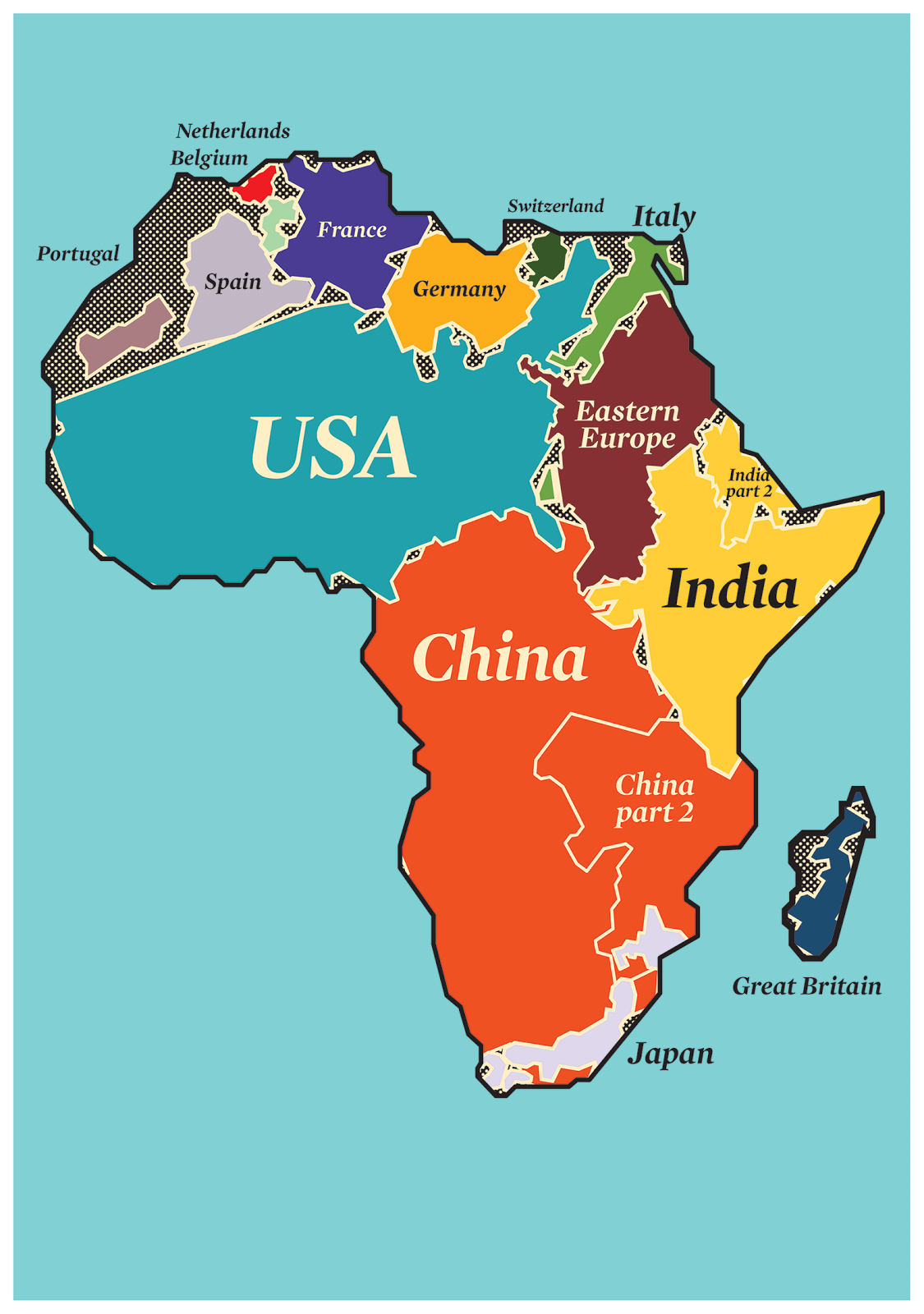Keith Jones
Silicon Valley leads the global technology innovation markets with the credentials and an ecosystem that is second to none. We have had contact with many of the leading technology accelerators operating out of Silicon Valley, and their opening line for the conversation is often: “How are you relevant to us?”
However, those of us living in the rest of the planet, the “outsiders,” have quite a bit of FOMO and, while we want to be part of the party, we still have to ask the question: “When is Silicon Valley going to become relevant to us?”
Africa is quite big, and we have quite a few challenges — probably more than our fair share. We have 1.2 billion people, 60 percent of the world’s uncultivated arable land and the most technologically underserved population on the planet. Emerging markets represent 60 percent of the world’s population, so while Africa is unique with its challenges, the emerging markets category, which we are part of, is going to be highly relevant in future markets.

Africa and the emerging markets have a leading role to play in the future direction of the planet. If we are brought along for the ride, we all have a chance of a good future. However, if we are left behind, we all suffer the consequences. The evidence that this is already happening is becoming more apparent.
Firstly, technology innovation is going to give us the data we so desperately need to understand how to solve the problems we face, and, secondly, will drive the cost-to-serve down to a point where we can address the problems effectively at the required scale. Technology innovation is everything to our future. The challenge we have for Silicon Valley is: “How are you going to be relevant to us?”
Technology accelerators look at the region and either see what they can do to take the top candidates across to Silicon Valley, or, launch a program, do it once and leave. The process seems to resemble more of an A/B test than a customer or market validation exercise. Working with a lot of the VCs, locally and internationally, the most common questions are: “Have you got pipeline for us?” and “Do you think there is enough quality in the region to sustain the innovation market?”
The response is, firstly: “What are you doing to develop your own pipeline?” and, secondly, “We have bucket loads of talent. However, it is not being leveraged right now because we are trying to emulate the Silicon Valley models, which don’t work here.” Our markets are different, that is the joy of the world in which we live. In a dysfunctional ecosystem, the challenge is the opportunity — there is nothing more exciting than creating new solutions. In the West, less than 30 percent of payments are from mobile devices, in emerging markets it is 60 percent.
The West says “mobile first;” Africa is mobile only, so the way we use mobile is very different. The West thinks “cloud/PC/tablet/mobile;” emerging markets think “mobile/bricks and mortar.” Our payment models are different: We need to service larger, more complex, multi-cultural user communities at a cost to serve that is a fraction of the West, off weaker infrastructure.
In the remittance markets, both Hello Paisa and Mukuru have more than a million customers each. Rethink Education was first to market with mobile education solutions and content via MMS. I Love Zoona has managed to scale with in-country transfers gaining a loyalty and reach with which banks cannot compete.
In developed markets, what indicates success is the innovation itself and how you can scale. In emerging markets, how you create access to market is everything. In his book The Innovator’s Dilemma, Clayton Christensen covers three types of innovation: 1) true innovation, 2) incremental innovation and 3) sector innovation. What drives emerging markets is the fourth innovation, market access innovation. If you can innovate how you reach your market, the other innovations are not as relevant. MTN figured this out and built a telco with more than 228 million subscribers across 22 countries in Africa and the Middle East.
The innovation markets are business economies, like any other, so the fact that none of the Silicon Valley accelerators are actively engaging in emerging markets means one of three things: 1) there is easier money to be made somewhere else, 2) the business models they have don’t scale or aren’t relevant or 3) the businesses aren’t looking to scale as they are the legacy businesses described in Clayton Christensen’s book.
The first is probably the most applicable. In global terms from a GDP point of view, emerging markets tend to be more of a rounding error than a strategic focus and, although all points mentioned have some relevance, the third probably has the least. Our markets are complex, and don’t work the same way as the Western markets; barriers to entry are relatively high and the learning curve for the Western marketers is not steep, it is nearly vertical.
The markets take time to enter and understand. Our markets are defined by the “missing middle” in both the B2B and B2C sectors. The economies are fragmented and Western scale models tend to be built on scaling across a large enough homogenous customer base to reach liquidity. Scale is driven by having a market that is both accessible and addressable.
In emerging markets, the communities are becoming accessible, and we are mobilizing very quickly — but addressability remains the challenge. Each sector needs to have its needs met. Niche extensibility drives the markets here — how to monetize a business off not one, but a number of smaller niche communities. If Silicon Valley can figure out how to access and scale in these markets, the rewards are a contribution to, and relevance in, the future global economy.
The process to-date is taking the top 0.001 percent of African startups and moving them to Silicon Valley to be accelerated there. Many of the businesses stay there, close to their funders; some return. This model fits in with the Silicon Valley business model and, while we actively celebrate and support these individual wins, it does little to connect Silicon valley to the majority of the planet.
Get over yourself, I hear you say. It is a hard commercial world out there, sort out your problem. And we are. We are all moving ahead and doing what we can, figuring things out. We started accelerating businesses three years ago and the market of today is a very different market. It is happening, but not in a way that is relevant to the Silicon Valley business models.
Startup Rules 101 indicate that a business needs to be locally relevant to succeed. The product must be built to serve the needs of the customer in that market. Right now, the customer is the limited partner in the accelerator and the market is the U.S. Emerging market innovators represent deal flow for this machine. Until the emerging markets and their customers become the target, we are unlikely to have a meaningful relationship with Silicon Valley.
Business dynamics must apply, so here is the opportunity. Businesses lift more slowly here but cash goes three times as far. The market is underfunded; perhaps some would describe it as more than a bit chaotic. However, chaos means opportunity, and the costs to lead a sector and get the network effect working are relatively low. It is more of a numbers game: quality is variable, so you need more chips on the table, but the cost of the chips is lower. The equity rewards will take longer to show, but the skills will not. It is a bit more like the Wild West than the West you know, but the opportunities are in line with the analogy.
The skills developed will be an understanding of how to access the majority markets and learn how, when and where to scale. As the competition in the innovation markets heats up, the shifting focus of investors from footprint to revenue will play more strongly to our markets and skills. The emerging markets missed the vanity metrics bubble and the focus on footprint; however, the historic lack of funding means we tend to be more cash focused. It is easier to have a realistic conversation about break-even. Our mentor community is mobilizing quickly, as are the local funds, so there are more and more people with whom to connect and work.
Africa is open for business, it’s beginning to happen. We are shifting from an innovators to an early adopters market. It is not for everyone, and as we say locally, “Africa is not for sissies.” We would love to lay an emerging markets challenge down to Silicon Valley. “When are you going to need the skills to understand how to access the majority of the planet?” If you do reach out, the question we would like to hear is: “How can we be relevant to you?” Is there anyone in Silicon Valley who is not a sissy?































Comment